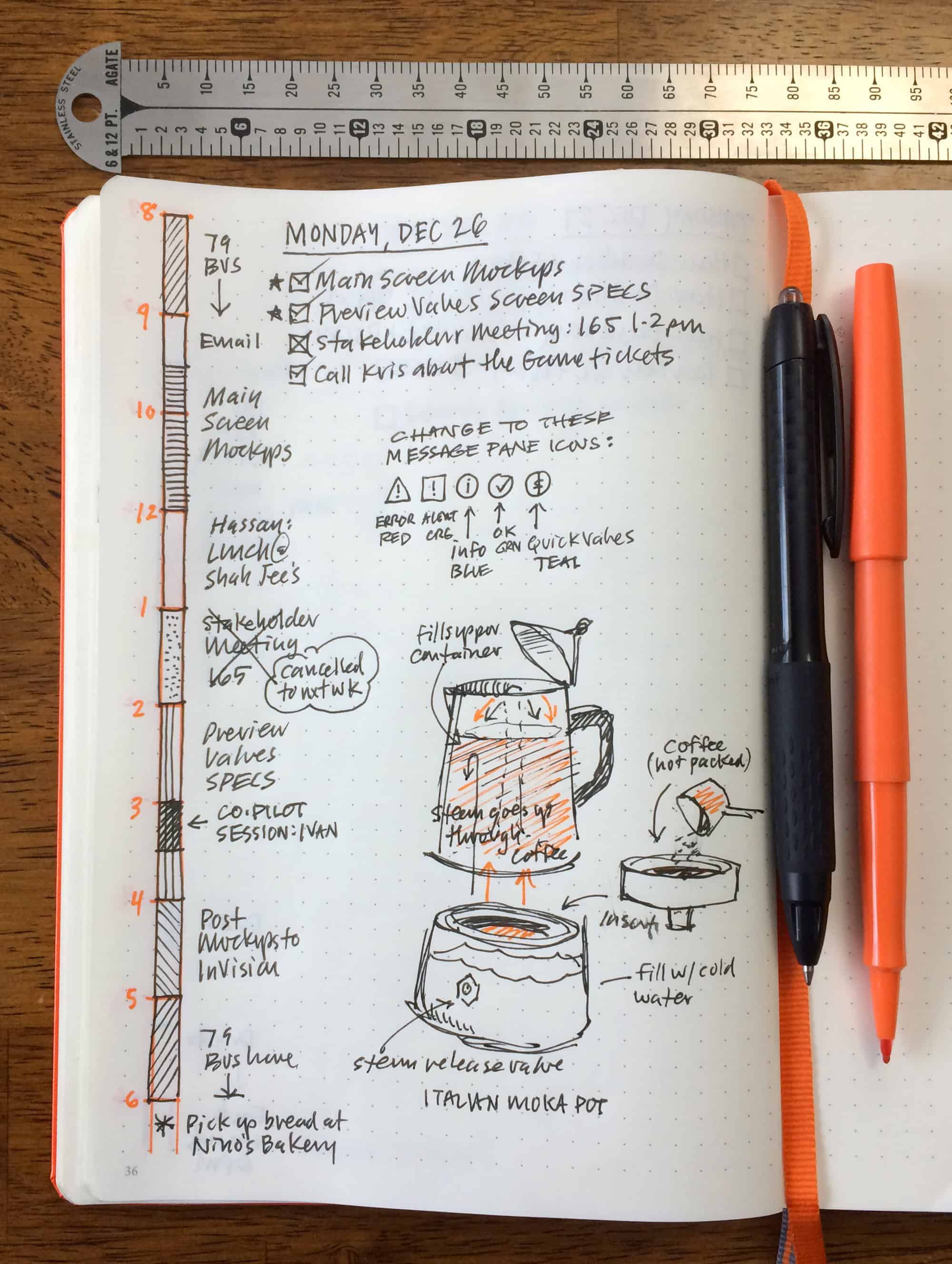This article is the last in a series I’ve been writing about goal setting. You can find the previous articles here, here, here, here, and here.*
As I write this, it’s been nearly 7 years since I quit my job to begin working for myself.
In the early days, I felt as if my task list was never-ending. There was always one more thing to do.
The norm for me was to finish the day with a sense of dissatisfaction. As I would wrap things up, I felt as if I didn’t really get anything done because there was still so much to do.
The problem was that I was looking toward what was still to be done rather than looking back at what had been accomplished. If you are defining success by what is still left to do, you will never win. Because there is always something more to do.
My approach has changed over the years, and it has given me two huge advantages…
For one, I am clear on each day’s tasks — knowing the few most important things I need or want to get done — and I am able to focus on them.
Secondly, I now end the day feeling accomplished and satisfied. Thanks, primarily, to the fact that I have a clear definition of what a successful day looks like (because I am defining success ahead of time).
Lastly, I have also begun to simply recognize and acknowledge the work I do each day. This has been so great at helping me maintain motivation day to day. Because, sometimes, let’s be honest, the work is work and it’s not fun.
In short, it looks like this:

1. Plan
My productive day actually starts the evening before. At the end of my work day, I take a few minutes to prepare for the next day. This is when I choose ahead of time what my most important tasks will be, and how I will “define success” for the upcoming day.
Some folks do this in the morning, but I prefer to have it done the night before.
This is helpful because you’re making a decision and a plan apart from urgency and emotion. By making the choice ahead of time, you can think clearly. You’re not yet emotionally invested in tomorrow, nor are you feeling the urgency of any of tomorrow’s pressing matters. With a clear head you can make a good choice about tomorrow’s most important tasks as they relate to your goal(s).
2. Act
Planning is actually quite easy. It does require a little bit of effort, so don’t be lazy about it. The hard part is — as always — in the doing.
And that is why the first step of planning is so powerful. It helps you to overcome the paralyzing state of indecisiveness.
One of the most common challenges when it comes to focus is people feeling paralyzed from indecisiveness. They finally make some time to work on something important, but when they sit down there are so many thing they want to work on that they don’t know where to start. They spend all their creative energy deciding what to do that they don’t have any willpower left to actually do the work.
If you are waiting until it’s time to begin work before you make a choice about what to work on, the choice is much harder. Instead, make the choice for yourself ahead of time.
As I mentioned at the start, so often I used to end my day with a feeling that it was a waste. I would get caught up in the many urgent and pressing issues of the day. Things didn’t go as well as I’d hoped they would. I’d try to make progress on a meaningful task but just kept hitting a wall. And then I’d see all the things that still needed to be done.
Some days, that can just be the way life is. I definitely have days where everything seems to be against me. But those are exceptions, not the rule.
When wasted, unproductive days feel like the norm — you need to bust out of that routine.
3. Acknowledge
Recognizing and celebrating your progress is critical. When you accomplish a goal, or make meaningful progress, take a moment to acknowledge it.
For the little things, it can be as simple as checking off a box. Perhaps you can write about your wins in a notebook or journal app.
When you see that you are making progress — even small victories — then it strengthens your emotional and motivated state. You are happier and more motivated at work. And therefore, we are more likely to be productive and creative.
This is one reason why having regular times of review can be so beneficial. It reminds us of the tasks and goals accomplished and the projects we’ve completed. It keeps things in perspective, reminding us that the oftentimes seemingly-mundane and difficult work we do every day is actually adding up to something of value.
A New Plumb-Line for Meaningful Work
By identifying one task or outcome you’d like to see happen each day then you have a quantifiable way to measure if you’re making progress on your important activities and doing the work that matters to you. This is so much more beneficial than the subjective and arbitrary metrics we are used to holding ourselves to.
And when you do accomplish those tasks, awesome! No matter what else happened, at least you made progress on something that mattered. And if you don’t accomplish that task, don’t freak out — you have a chance to learn and improve so that next time you’ll be able to do better.
Lastly, take a moment to acknowledge what you got done. Pat yourself on the back, at least for a moment, before you move on to the next thing.


